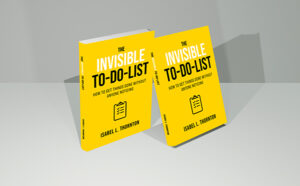Introduction: The Invisible Stories Running Your Financial Life

Why do some people save effortlessly while others can’t keep money in their account for more than a few days?
Why do you sometimes make purchases you know you’ll regret—or avoid dealing with bills even when you can afford them?
The answer often isn’t about math, budgeting skills, or willpower.
It’s about money scripts—deeply embedded beliefs about money that form in childhood and silently guide your financial decisions as an adult.
This concept is explored in powerful detail in Money Habits Revealed: Unlock the Hidden Patterns That Shape Your Financial Life by Marcus Dane, a book that blends psychology, behavioral economics, neuroscience, and emotional intelligence into a clear path for true financial transformation.
These hidden scripts operate like background programs:
- They dictate whether you feel safe saving money
- They influence whether you spend emotionally
- They shape how you react to debt, stress, or financial uncertainty
- They determine whether you feel confident…or ashamed…about money
And until you identify and rewrite them, they continue to repeat—often for decades.
Today’s blog uncovers what money scripts are, how they form, how they show up in your financial behavior, and—most importantly—how you can rewrite them for good.
What Are Money Scripts? The Psychology Beneath Your Habits
A money script is a deeply rooted belief about money formed during childhood and adolescence. These beliefs often develop long before you earn your first paycheck—and long before you’re capable of understanding complex financial realities.
Money scripts are:
- Unconscious — you don’t usually know you have them
- Emotional — tied to fear, shame, scarcity, or identity
- Learned — shaped by caregivers, culture, and early experiences
- Powerful — they influence behavior even when you know better
For example:
- If you were raised hearing “money is scarce,” you may oversave or refuse to spend even when necessary.
- If you grew up around arguments about bills, you may avoid checking your balances altogether.
- If your parents used shopping as a reward or stress relief, you may repeat this without thinking.
As Money Habits Revealed explains, these scripts create predictable patterns that show up in adulthood.
Understanding them is the first step toward changing your financial life from the inside out.
How Childhood Experiences Shape Adult Money Scripts
Your earliest money memories—good or bad—have a long-term emotional impact. A few examples:
1. Money Was Stressful in Your Home → You Avoid Money as an Adult
If you saw parents hide bills, fight about money, or panic over expenses, your nervous system learned that dealing with money = pain.
Now, you may avoid:
- Opening bills
- Checking accounts
- Budgeting
- Planning
Even if you’re financially stable.
2. You Learned to Spend for Comfort → Emotional Shopping Becomes a Habit
If “treats” were used to soothe sadness, celebrate achievements, or distract from conflict, you may now use spending for emotional regulation.
This script often results in patterns like:
- Retail therapy
- Impulse purchases
- Shopping when lonely, stressed, or bored
3. You Were Taught “Money Is Hard to Get” → Chronic Scarcity Thinking
Growing up hearing “we can’t afford that” or “don’t waste money” can create intense fear around spending—even when you earn enough.
This may lead to:
- Over-saving to the point of self-denial
- Feeling guilty for any purchase
- Avoiding investments
- Struggling to enjoy your money
4. You Received Mixed Messages → Confusion and Shame
One of the strongest passages in Money Habits Revealed describes how conflicting childhood messages can create lifelong tension:
“Only when I learned to unearth and rewrite those early money scripts did things finally begin to change.”
Many adults are stuck in similar emotional contradictions.
The good news?
These scripts are not permanent. You can rewrite them with awareness and intention.
The Four Most Common Money Scripts (And How They Hold You Back)
Research and behavioral psychology suggest most people fall into one of four core money script categories.
1. The Scarcity Script
“Money will run out.”
“Money is hard to get.”
“I should never spend unless absolutely necessary.”
Effects:
- Fear-based saving
- Anxiety around purchases
- Difficulty investing
- Constant financial stress
2. The Avoidance Script
“Money is overwhelming.”
“I can’t deal with finances right now.”
“If I ignore it, it will sort itself out.”
Effects:
- Ignoring bills
- Late fees
- Avoiding planning
- Not opening bank apps
3. The Self-Worth Script
“My value is tied to what I own.”
“Success must be visible.”
“If I spend, I feel good about myself.”
Effects:
- Overspending
- Lifestyle creep
- Debt accumulation
- Emotional shopping cycles
4. The Control Script
“I must manage every penny.”
“Spending is risky.”
“If I don’t save everything, something bad will happen.”
Effects:
- Financial rigidity
- Guilt over small purchases
- Limited enjoyment of money
- Strained relationships
Each script has strengths—but also serious blind spots.
Identifying your dominant script(s) gives you the power to break the cycle.
How to Identify Your Money Script (Self-Discovery Exercises)
Below are two powerful introspective exercises based directly on reflective methods presented in Money Habits Revealed.
Exercise 1: Your Early Money Memory Map
Grab a notebook and write down:
- Your earliest money memory
- How it made you feel
- What you learned from it
- How you react to similar situations today
For example:
- “My parents argued about bills → Money feels tense → I avoid looking at statements.”
This single exercise alone can reveal years of unconscious conditioning.
Exercise 2: Money Behavior Audit
For one week, track:
- When you feel stressed about money
- When you spend impulsively
- When you avoid financial tasks
- What triggered each reaction
These patterns map directly onto your money script.
How to Rewrite Your Money Script (Step-by-Step Transformation)
Money scripts are powerful, but they are not destiny. In fact, they begin to lose power the moment they are brought into conscious awareness.
Below is a practical, psychologically grounded rewriting process inspired by the transformation framework described in Money Habits Revealed.
Step 1: Name the Script
Instead of saying:
- “I’m terrible with money.”
- “I overspend.”
- “I can’t save.”
Shift to:
- “I have a scarcity script.”
- “I have an avoidance script.”
Naming the script separates it from your identity.
Step 2: Challenge the Script
Ask yourself:
- “Is this belief 100% true?”
- “Where did I learn this?”
- “Does this belief still serve me?”
Often, the answer is no.
Step 3: Replace the Script with an Empowering Belief
Examples:
- Scarcity → “I am capable of earning more and saving safely.”
- Avoidance → “Confident financial decisions reduce my stress.”
- Self-worth → “My value comes from who I am, not what I buy.”
- Control → “Balanced spending brings joy and security.”
Repeat your new belief daily.
Step 4: Reinforce the New Script with Action
This is where your new belief becomes a habit.
- If you fear spending → Make a small, intentional purchase
- If you avoid money → Check your balance each morning
- If you overspend → Wait 24 hours before purchases
- If you over-control → Set aside a fun-money budget
These micro-actions tell your brain:
This is who I am now.
What Happens When You Rewrite Your Money Script?
Life changes. Dramatically.
People often experience:
- Less money-related anxiety
- Stronger saving habits
- More confident decision-making
- Better communication with partners
- Sustainable financial growth
- Freedom from emotional triggers
- Reduced debt cycles
In Money Habits Revealed, Marcus Dane writes that money transformation is “a journey of self-discovery and psychological healing”—and the stories throughout the book illustrate exactly what happens when these scripts shift.
The transformation is real. And it lasts.
Ready to Transform Your Money Mindset?
If you want a deeper, emotionally intelligent understanding of your financial habits—and a clear path to rewriting them—Marcus Dane’s book offers an exceptional guide.
👉 Explore the full transformation inside Money Habits Revealed:
https://www.amazon.com/dp/B0G1SXVB5T/
This book is packed with insights, real-world stories, and practical, mindset-shifting exercises that go far beyond traditional financial advice.




